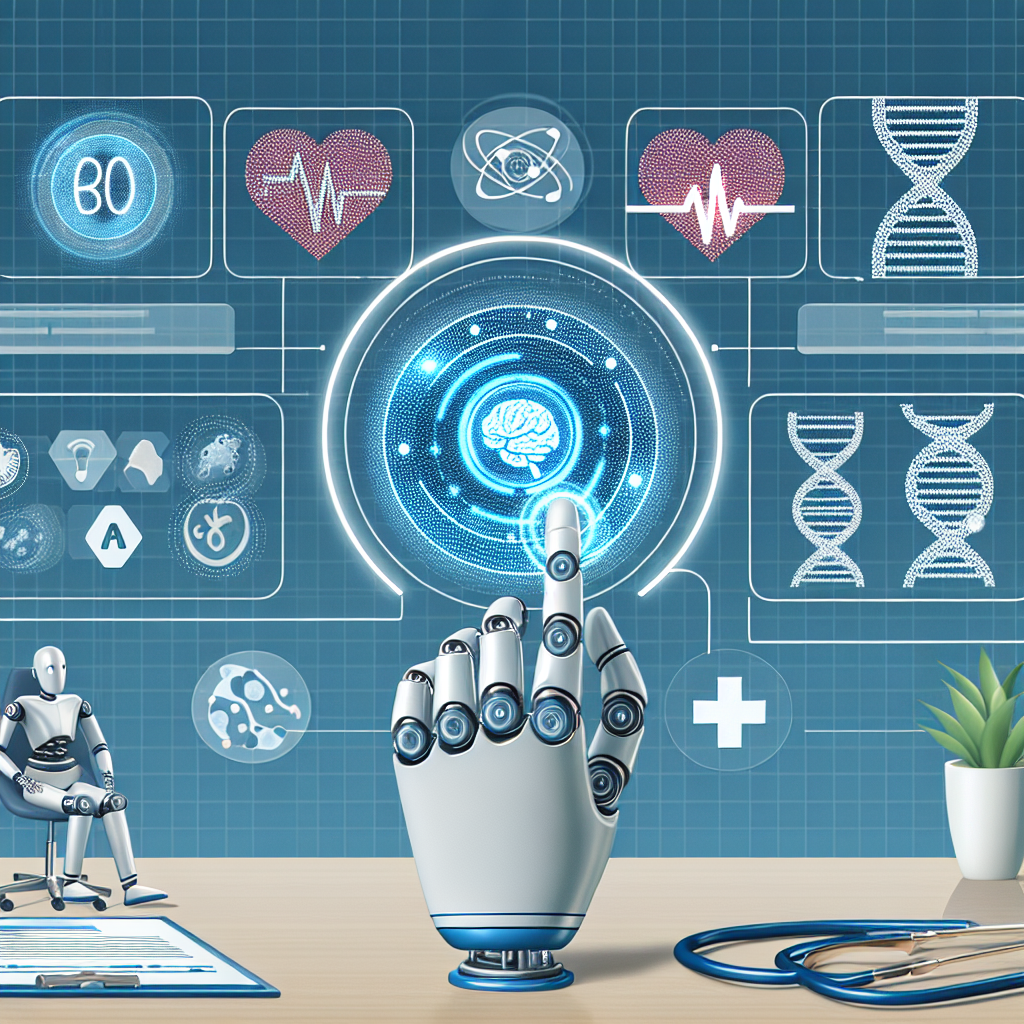AI Consulting for Healthcare Diagnostics: Revolutionizing Patient Care
Artificial intelligence (AI) has rapidly transformed various industries, and healthcare is no exception. In recent years, AI has played a pivotal role in revolutionizing healthcare diagnostics, providing faster, more accurate, and cost-effective solutions for patient care. AI consulting for healthcare diagnostics involves the use of advanced algorithms and machine learning techniques to analyze vast amounts of healthcare data and assist healthcare professionals in making informed decisions. This article explores the benefits of AI consulting for healthcare diagnostics and answers some frequently asked questions about this emerging field.
Benefits of AI Consulting for Healthcare Diagnostics
1. Improved Accuracy and Efficiency: AI algorithms can analyze large volumes of medical data, including patient records, test results, and imaging scans, with speed and precision. This enables healthcare professionals to make more accurate diagnoses and treatment decisions, leading to improved patient outcomes.
2. Early Disease Detection: AI systems can detect patterns and anomalies in medical data that may not be easily discernible to the human eye. This can help in the early detection of diseases such as cancer, diabetes, and cardiovascular conditions, allowing for timely interventions and improved prognosis.
3. Personalized Treatment Plans: AI consulting for healthcare diagnostics enables the development of personalized treatment plans based on an individual’s unique medical history, genetic makeup, and lifestyle factors. This tailored approach to healthcare can lead to better treatment outcomes and patient satisfaction.
4. Cost-Effective Solutions: By streamlining diagnostic processes and reducing the need for unnecessary tests and procedures, AI consulting can help healthcare organizations save money and resources. This can result in lower healthcare costs for patients and improved efficiency in healthcare delivery.
5. Enhanced Decision Support: AI systems can provide healthcare professionals with real-time decision support tools, such as predictive analytics and treatment recommendations, to assist in clinical decision-making. This can improve the quality of care delivered to patients and reduce the risk of medical errors.
6. Remote Monitoring and Telemedicine: AI consulting for healthcare diagnostics enables remote monitoring of patients’ health conditions and the provision of telemedicine services. This can help in extending healthcare services to underserved populations and improving access to care for patients in remote areas.
Frequently Asked Questions about AI Consulting for Healthcare Diagnostics
Q: What types of healthcare data can AI algorithms analyze?
A: AI algorithms can analyze various types of healthcare data, including electronic health records (EHRs), medical imaging scans (such as X-rays, MRIs, and CT scans), genetic sequencing data, wearable device data, and patient-generated health data (such as symptoms, vitals, and lifestyle factors).
Q: How do AI algorithms learn from healthcare data?
A: AI algorithms learn from healthcare data through a process known as machine learning, where they are trained on large datasets to recognize patterns, correlations, and anomalies. The more data the algorithms are exposed to, the more accurate and reliable their predictions become.
Q: Are AI algorithms reliable for making medical diagnoses?
A: While AI algorithms can assist healthcare professionals in making diagnoses, they are not meant to replace human judgment or clinical expertise. AI should be used as a tool to support healthcare professionals in their decision-making process and enhance the quality of care provided to patients.
Q: What are the ethical considerations associated with AI consulting for healthcare diagnostics?
A: Ethical considerations related to AI consulting for healthcare diagnostics include concerns about patient privacy, data security, algorithm bias, transparency in decision-making, and the potential impact on healthcare professionals’ roles. It is important for healthcare organizations to address these ethical issues proactively and implement safeguards to protect patients’ rights and well-being.
Q: How can healthcare organizations implement AI consulting for healthcare diagnostics?
A: Healthcare organizations can implement AI consulting for healthcare diagnostics by partnering with AI consulting firms, investing in AI technologies and infrastructure, training healthcare professionals in AI applications, and integrating AI systems into existing healthcare workflows. It is essential to have a clear strategy and governance framework in place to ensure successful adoption and implementation of AI in healthcare diagnostics.
In conclusion, AI consulting for healthcare diagnostics holds great promise in transforming the way healthcare is delivered and improving patient outcomes. By harnessing the power of AI algorithms and machine learning techniques, healthcare professionals can leverage vast amounts of healthcare data to make more accurate diagnoses, develop personalized treatment plans, and enhance decision support. As AI technologies continue to evolve, it is important for healthcare organizations to stay abreast of the latest developments in AI consulting for healthcare diagnostics and explore innovative ways to incorporate AI into their clinical practice. By embracing AI as a valuable tool in healthcare diagnostics, we can pave the way for a more efficient, effective, and patient-centered healthcare system.

